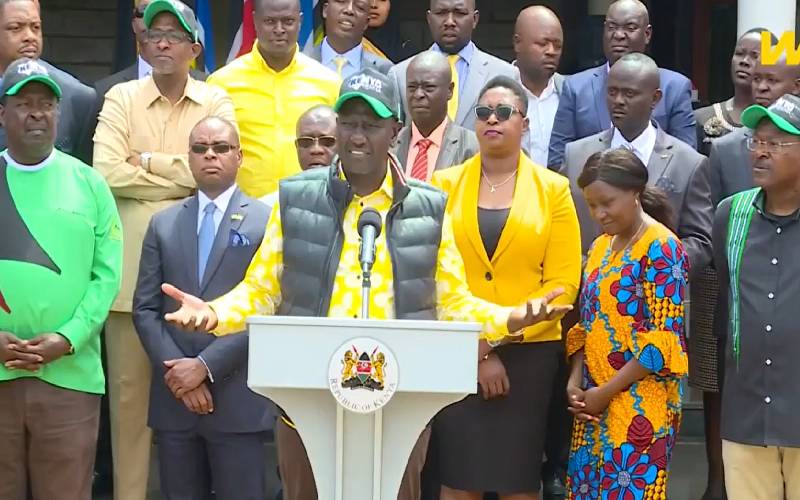×
The Standard e-Paper
Fearless, Trusted News

Deputy President William Ruto says the Standard Gauge Railway (SGR) project was hijacked to enrich a few individuals.
He was speaking today at his Karen residence when he welcomed the Pamoja African Alliance (PAA) party led by Kilifi Governor Amason Kingi to his Kenya Kwanza coalition.